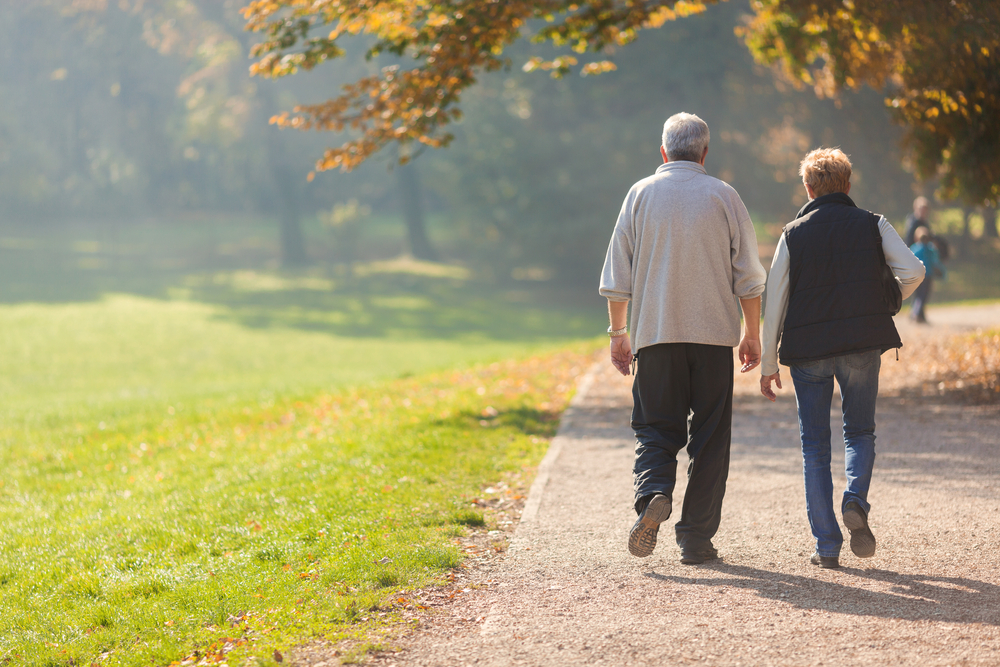Green prescriptions — a prescription for an individual to step outside and spend time in nature and community — are an effective, inexpensive way to ease the burden of loneliness.
Loneliness. The word conjures up an image of a person on their own, withdrawn and deeply unhappy.
Australia is described as the “lucky country”, yet one in three Australians consider themselves lonely, paradoxically at a time, when digital technology enables us to connect with each other more easily and quickly than ever before.
Defined as the subjective experience of being alone without meaningful connection, that causes distress, the associated social pain is manageable in the short term, but not when chronic. Chronic loneliness does us harm, shortening lives and increasing morbidity through higher rates of depression, heart disease, stroke and risk of cancer.
Loneliness is frequently hidden. It’s not something we find easy to talk about because of the associated stigma. My loneliest patients would present with a litany of vague ailments as a cover when instead they just wanted someone to talk to.
Anyone can be at risk, but those under the age of 25 years and those over 65 years are especially vulnerable. If you spend over 75% of your time alone, it’s hard not to feel lonely. Rapid urbanisation, geographical separation from family and friends, long hours at work, working from home and increased reliance on technology for social connection have all contributed to what is called our lonelygenic environment.
We are also spending less time outside, in some instances less than thirty minutes a day. This nature deficit is believed to explain why urbanites have worse levels of anxiety, (20% more likely), depression (40% more likely) and loneliness compared to those living in rural areas.

There is no item number for loneliness. But there is much we as health practitioners can do to raise community awareness of the problem, the contributing factors, the damage it does to health and provide green prescriptions.
Green prescriptions — a prescription for an individual to step outside to visit a local park, to connect with a local community support network or community project — are an effective, inexpensive way to ease the burden of loneliness. Many studies have shown how spending time in nature has a positive effect on mental and physical health and wellbeing, alleviating symptoms of anxiety, depression and loneliness. Many practitioners I’ve spoken with have shared how they use time in nature for their own health benefits. But despite the evidence, including the NSW study of 47 000 adults that found that those living in areas with a tree canopy of 30% or more reported lower psychological distress and better general health, and a 25% reduction in risk of becoming lonely, Australia has yet to take green prescriptions mainstream with a national program.
With GPs supporting their patient’s participation in outdoors activities, this creates the habit and sets up the anticipation of a pleasant social interlude in daily activities. There’s a reason why hospitals are creating healing gardens and spaces for patients to access, and why urban planners are increasingly using biophilic elements (elements to connect humans to nature through the built form) to green our streets or invite nature into our homes and workspaces.
Around the world, green prescriptions are being used to tackle loneliness including the Global Social Prescribing Alliance in the UK that involves a link worker to assess a person’s interests and barriers to social connection. The United States launched Park Rx in 2013 where a free day pass to a state park is provided on presentation of their green prescription.
A small 8-week controlled evaluation of a green prescription program in Queensland suggested this type of program is acceptable to patients to help address loneliness and develop new trusted social connections. More studies are needed to demonstrate its value.
Connecting with a support network outdoors in this way can instil a renewed sense of purpose and pride. Other benefits include increased physical activity and wellbeing along with improved sleep. It fosters more meaningful conversations and can lead to the creation of new friendships with others who also share a love of nature.
The beauty and simplicity of these prescriptions is that they can be tailored to the individual depending on what appeals, the time they have available and the accessibility of nearby green space. Recommending that all our patients step outside more often is a powerful way to enhance better overall health and wellbeing.
Time in nature is not a panacea to fix all our social ills but is a useful and effective strategy to reduce loneliness and strengthen positive social connection in our communities.
This is our natural advantage at work.
Dr Jenny Brockis is a board-certified lifestyle medicine physician, workplace health and wellbeing consultant, and author of The Natural Advantage (Major Street Publishing). www.drjennybrockis.com
The statements or opinions expressed in this article reflect the views of the authors and do not necessarily represent the official policy of the AMA, the MJA or InSight+ unless so stated.
Subscribe to the free InSight+ weekly newsletter here. It is available to all readers, not just registered medical practitioners.
If you would like to submit an article for consideration, send a Word version to mjainsight-editor@ampco.com.au.

 more_vert
more_vert
Thank you for promoting green prescribing and the beneficial effects of the environment on health.
This is another argument to stop councils chopping down established trees, is populated areas, where fire breaks are not an issue. It is lovely to have some facts about health benefits to use in arguments supporting tree shaded environments
My father was hospitalised mid-Dec 2024 with Parkinson’s related complications. Care in this public hospital has been excellent, however there are no dedicated green spaces away from traffic, only a small front garden which is favoured by smokers and adjacent to a road. However, the few times we’ve been able to wheel him outside to feel the breeze on his face, hear the birds and smell the garden has been a visible boost to his wellbeing. The only other outside space is a quadrangle adjacent to the cafe which unfortunately is poorly maintained, dead plants, broken chairs and generally unpleasant. Health facility planners must incorporate accessible, quiet, well-maintained green spaces for patients and families.